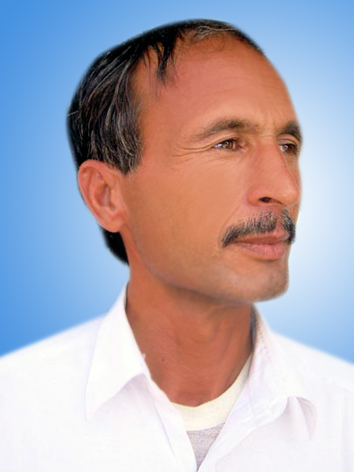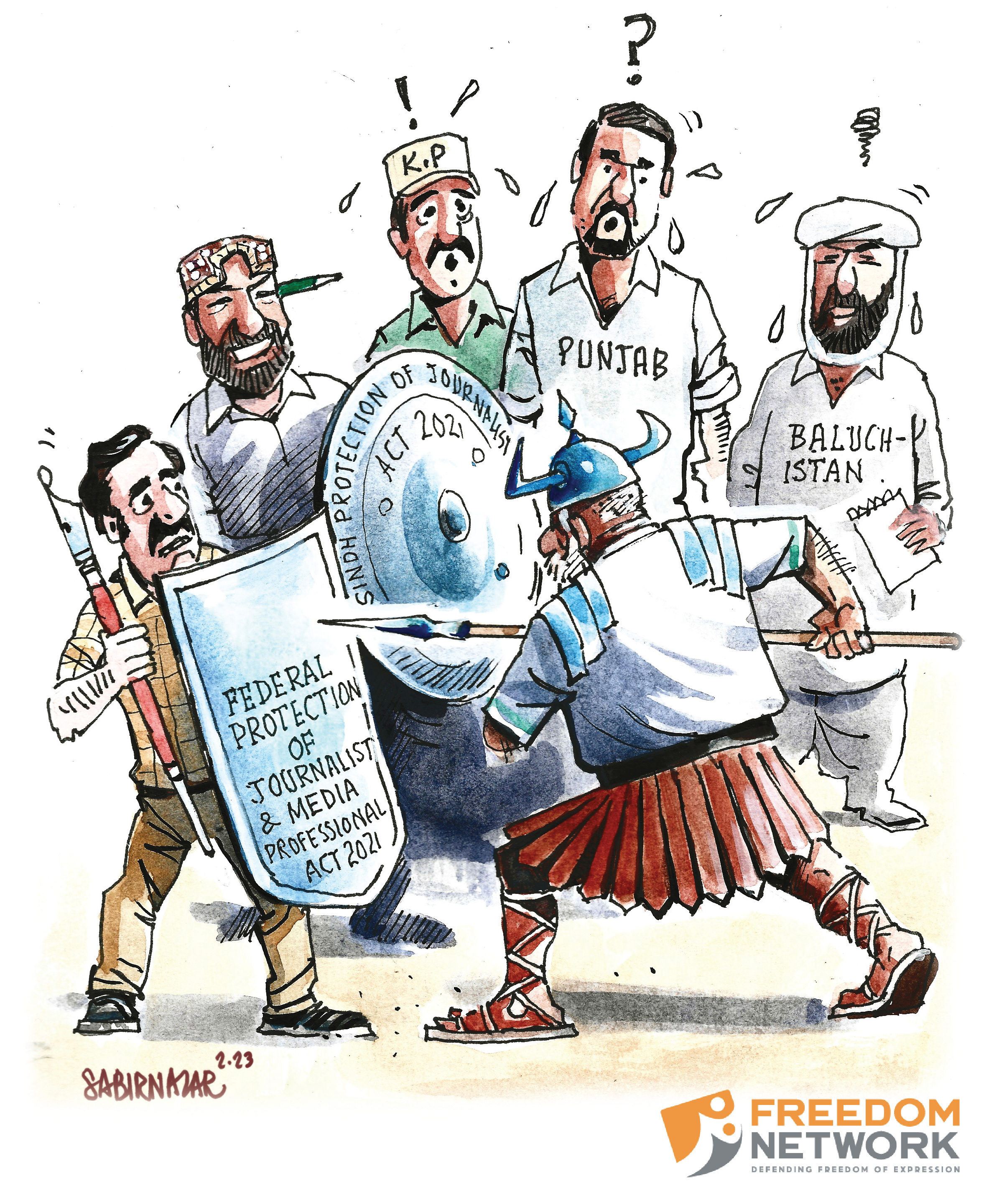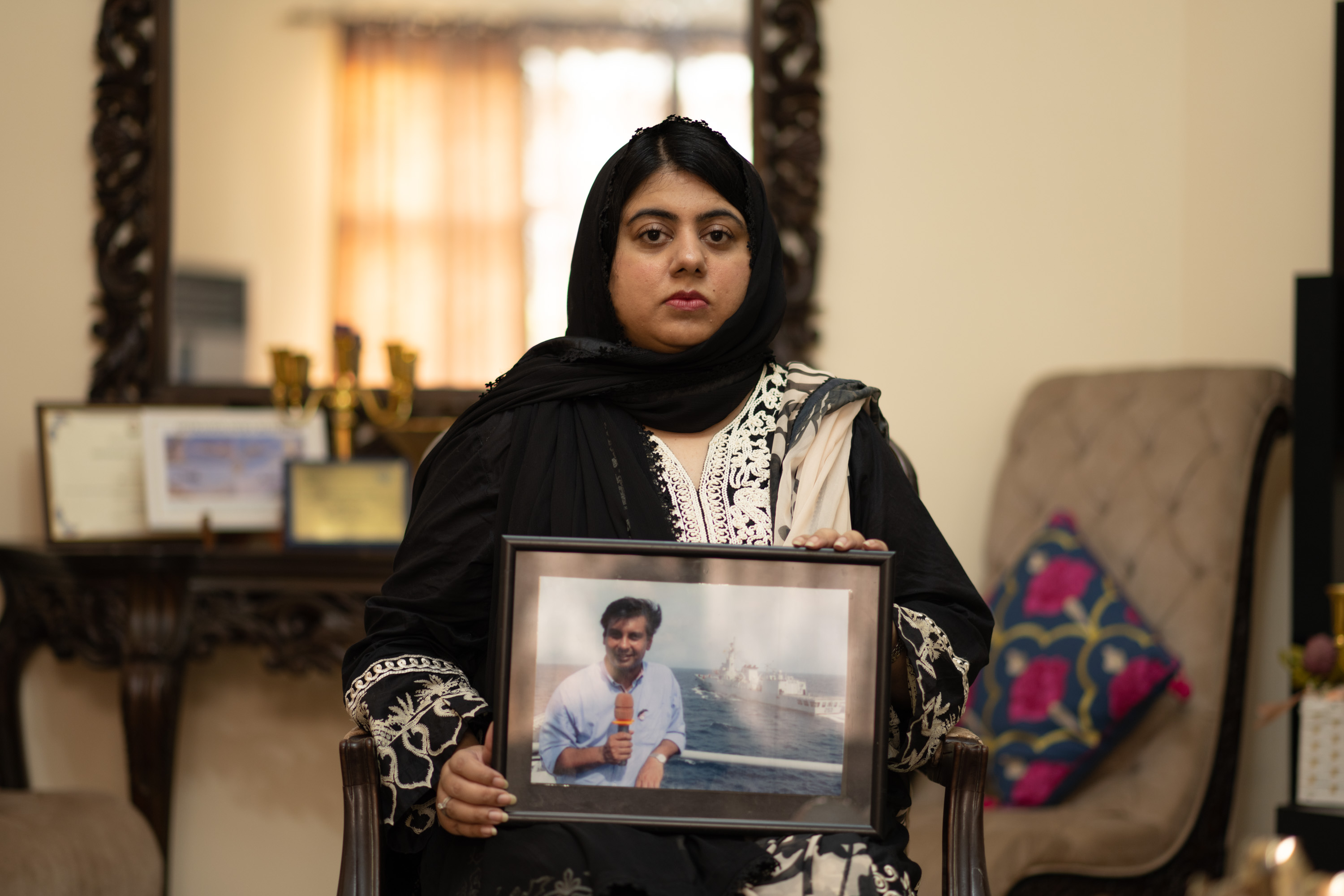PESHAWAR: A court in Pakistan has awarded life imprisonment and fine of five million rupees ($50,000) to an accused charged with murdering journalist Ayub Khattak in 2013.
The punishment handed out to the accused on March 16, 2016, is only the third time that the murderer of a journalist in Pakistan has been found guilty.
After a trial lasting about two years, Judge Kamal Hussain Shah of the District and Sessions Court in Karak district of Pakistan’s northwest Khyber Pakhtunkhwa province found accused Amin Ullah guilty of murdering Khattak on October 11, 2013.
Khoob Niaz, the brother of Ullah, who was co-accused in the case, was found not guilty and ordered freed.
According to a database of Pakistani media victims maintained by Freedom Network, a Pakistani media watchdog and advocacy platform working for defense of freedom of expression and civil liberties, 114 journalists and media workers have been killed for their work in the country since January 2000.
Khattak was a reporter for daily Karak Times based in Karak city of Khyber Pakhtunkhwa. As per police reports filed by Mukhtiar Khan, the brother of Khattak, the two accused brothers were drug smugglers and shot dead the journalist after he reported a news story on drug smuggling in the district.
The lawyer of the complainant, Akhtar Nawaz, told the court during proceedings that Khattak’s story focused on drug smuggling in Karak and sale of marijuana, eliciting some police action which annoyed the traffickers. He said prior to being killed, the defendants had also delivered him several life threats.
The prosecution argued that it was a premeditated brutal killing by the accused persons of a journalist who was simply performing his professional duty and both Ullah and Niaz should be awarded capital punishment as per law.
Lawyer Nawaz also added that both the accused brothers riding a motorcycle on October 11, 2013 intercepted Khattak, who was also on a motorcycle and had just finished his duty for the day in his office, in the Takht Nusrati area and shot him dead point blank.
Khan, the brother, and Shamsur Rehman, the son of deceased journalist Khattak expressed dissatisfaction over the court verdict for not awarding death sentence to both the accused. “We are going to challenge in the Peshawar High Court the minimum sentence to one accused and acquittal of the other by the District and Session Court,” Khan said after the judge announced his decision.
Freedom Network welcomed the decision as symbolic forward movement in the struggle for the battle against impunity enjoyed by predators of press freedom in Pakistan. “This is only the third time in Pakistan’s history that the killer of a journalist has been trialed and convicted. But a lot more needs to be done when it comes to providing effective protection of journalists and offering a credible deterrence to their predators and attackers,” it said in a statement.
“The killers of 111 other journalists and media workers still need to be identified, trialed, convicted and punished so that not just their families get the justice and closure they deserve but also so that Pakistan can also improve the climate for journalists and media freedoms in the country,” it added.
The only two other journalists killed in Pakistan whose killers were identified, prosecuted and convicted are Wall Street Journal Regional Bureau Chief Reporter Daniel Pearl who was kidnapped and eventually beheaded on February 22, 2002 in Karachi and Geo TV reporter Wali Khan Babar who was shot dead on January 13, 2011 in Karachi.
For most of the rest of the 111 journalists and media workers killed in the line of duty, the legal process of justice has not even moved beyond the primary stage of investigations. Most of their killers remain unknown and free. This is one of the highest rates of impunity against journalists anywhere in the world.
In 2012, the United Nations named Pakistan as one of the five pilot countries for its global Action Plan on Impunity against Journalists and Issues of Safety. Despite increasing demands by the media and rights defenders’ communities in the country, Pakistan remains without media safety laws or special prosecution and protection mechanisms to investigate and prosecute cases of attacks against journalists to combat impunity.
Caption: Late Ayub Khattak
Life Sentence For Killer Of Journalist In Pakistan
- March 17, 2016
- 3:50 am
- No Comments
More from the News section
September 18, 2023
No Comments
July 26, 2023
No Comments
June 20, 2023
2 Comments
March 21, 2023
No Comments
August 30, 2022
No Comments

Resize text-+=

